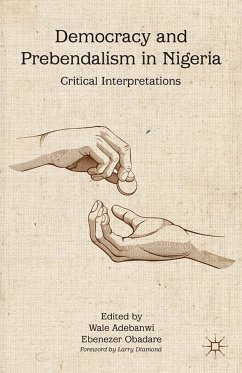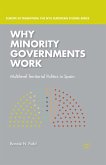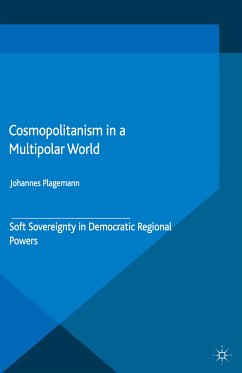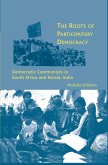Richard Joseph's seminal 1987 book Democracy and Prebendal Politics in Nigeria represented a watershed moment in the understanding of the political dynamics of Nigeria. This groundbreaking collection brings together scholars from across disciplines to assess the significance of Joseph's work and the current state of Nigerian politics.
Dieser Download kann aus rechtlichen Gründen nur mit Rechnungsadresse in A, B, BG, CY, CZ, D, DK, EW, E, FIN, F, GR, HR, H, IRL, I, LT, L, LR, M, NL, PL, P, R, S, SLO, SK ausgeliefert werden.
"At once smartly guided by theoretical concerns, and thoroughly engaged with the complicated and varied realities of Nigerian society and byzantine politics, the essays in this first-rate collection are essential reading to anyone who wishes to understand why a country with so much potential remains mired in poverty." - Nicolas van de Walle, Maxwell M. Upson Professor of Government, Cornell University, USA
"Adebanwi and Obadare, two of the leading lights of a new generation of African social scientists, have skillfully assembled an intergenerational mix of long-term students of politics, economy, and society in contemporary Nigeria that will offer readers considerable food for thought about the history of the organization and use of power and resources in Africa's most populous country. Their contribution, as much for the quality of the arguments marshaled as for the variety and cogency of issues covered, will make this book a compulsory companion for all those interested in gaining a more robust understanding of the dynamics that have combined together over the years to make Nigeria continuously under-perform at huge cost to itself and, indeed, all of Africa." - Adebayo Olukoshi, Director, UN African Institute for Economic Development and Planning (IDEP)
"Drawing in diverse ways upon Richard Joseph's seminal treatment of prebendalism, the contributors to this excellent volume illuminates the contradictions of 'really existing' democracy in Nigeria andits many predatory aspects. An invaluable guide to postcolonial Nigeria, the book is a major contribution to understanding African politics more broadly." - Crawford Young, Professor Emeritus, Department of Political Science, University of Wisconsin-Madison, USA
"The contributors to this volume use the prism of prebendalism to look at the permanent struggle in Nigeria over access to public resources, which structures the way Nigerians perceive citizenship, shapes the country's complex and sometimes contentious ethnic dynamics, and contributes to growing social inequality." Nicolas van de Walle, Foreign Affairs
"Adebanwi and Obadare, two of the leading lights of a new generation of African social scientists, have skillfully assembled an intergenerational mix of long-term students of politics, economy, and society in contemporary Nigeria that will offer readers considerable food for thought about the history of the organization and use of power and resources in Africa's most populous country. Their contribution, as much for the quality of the arguments marshaled as for the variety and cogency of issues covered, will make this book a compulsory companion for all those interested in gaining a more robust understanding of the dynamics that have combined together over the years to make Nigeria continuously under-perform at huge cost to itself and, indeed, all of Africa." - Adebayo Olukoshi, Director, UN African Institute for Economic Development and Planning (IDEP)
"Drawing in diverse ways upon Richard Joseph's seminal treatment of prebendalism, the contributors to this excellent volume illuminates the contradictions of 'really existing' democracy in Nigeria andits many predatory aspects. An invaluable guide to postcolonial Nigeria, the book is a major contribution to understanding African politics more broadly." - Crawford Young, Professor Emeritus, Department of Political Science, University of Wisconsin-Madison, USA
"The contributors to this volume use the prism of prebendalism to look at the permanent struggle in Nigeria over access to public resources, which structures the way Nigerians perceive citizenship, shapes the country's complex and sometimes contentious ethnic dynamics, and contributes to growing social inequality." Nicolas van de Walle, Foreign Affairs









